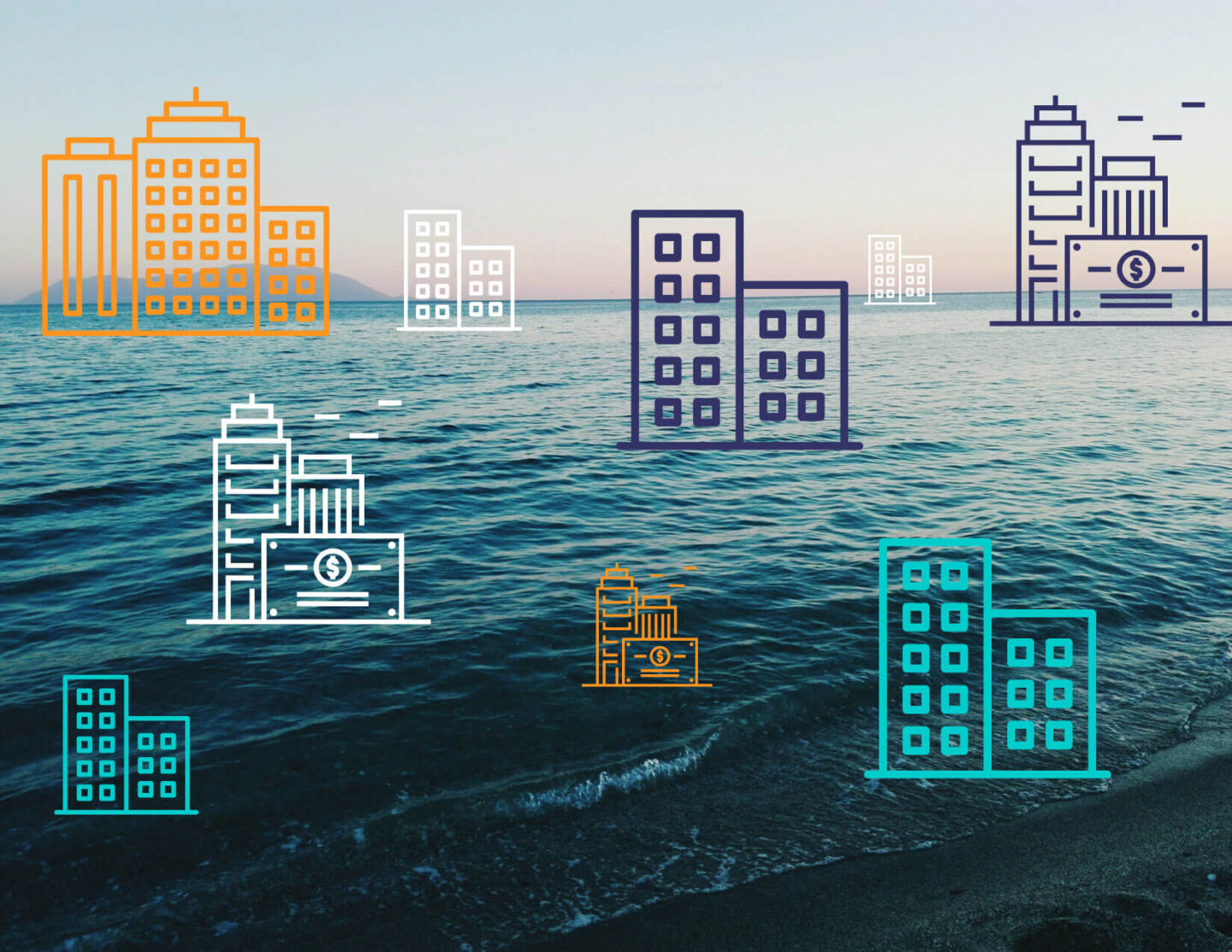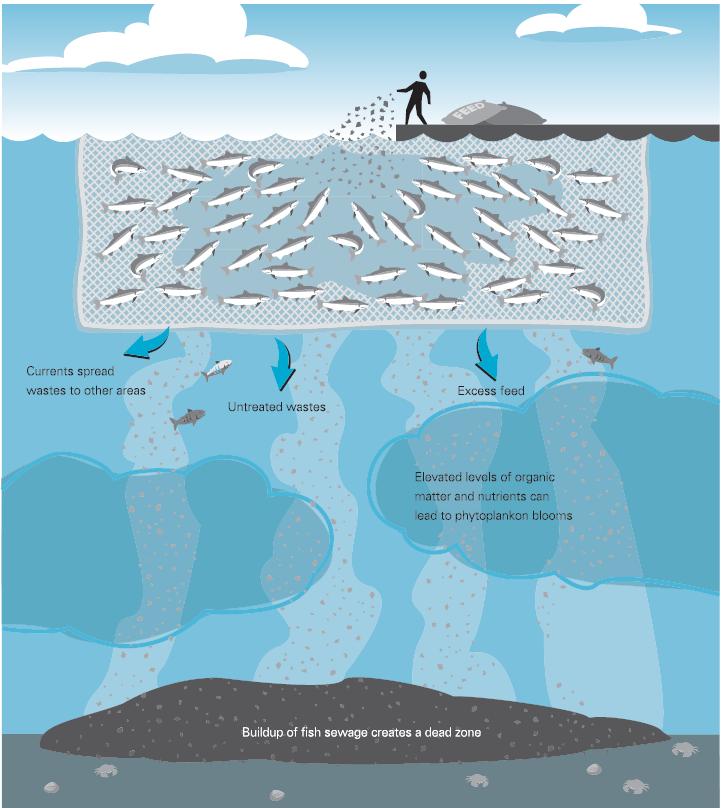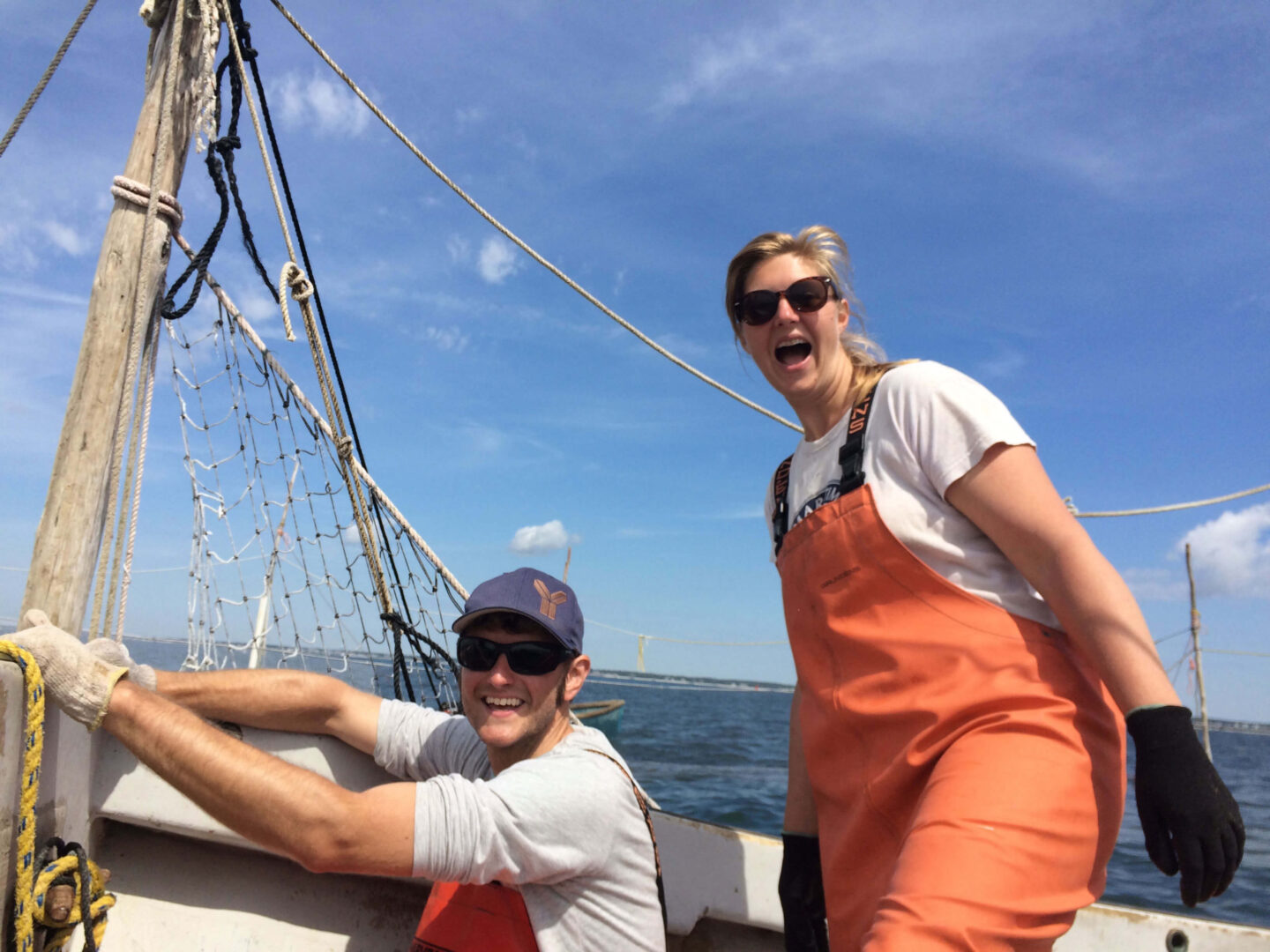Resisting Corporate Domination
Ever wonder why you can’t buy local fish in a fishing town anymore? Mega-corporations and private equity firms have used their hefty political influence and fat wallets to seize fishing rights from coastal communities. From day one, NAMA has opposed corporations turning ocean resources into private property. We aim to transform the disastrous seafood supply system by promoting strategies that elevate small- and medium-scale fishermen.
Share this Post
The Problem
Today, corporations increasingly dominate North America’s fishing industry and have consolidated the seafood supply system.

Corporate domination of the ocean and seafood industry takes on many forms, including fisheries access, factory fish farming, mining, and offshore drilling. This trend is also referred to as “ocean grabbing.” At NAMA, we focus mainly on two forms of ocean grabbing: fisheries access and factory fish farming.
Through the government-run Catch Shares program, goliath-sized businesses are snatching up fishing rights and evicting community-based fleets. Just like big box businesses replaced local ones on Main Streets everywhere, big seafood businesses are replacing mom-and-pop fishermen with big box boats. The right to fish is now a buyable, tradable piece of property, and fishermen are forced to pay these mega-corps for the right to fish.
Families that for generations caught America’s seafood have been forced to “get big or get out.” Privatization and consolidation have crushed coastal economies with widespread job loss, decreased crew wages, and shuttered dockside businesses. Countless career and multi-generation fishing families have been forced to quit the industry and give up their way of life. New fishermen can’t afford to enter the industry.
But corporate takeover of the fishing industry doesn’t end there.

Goliath-sized companies also own and operate factory fish farms. This method of growing seafood has been hyped by the government and corporations as a path to food and job security, and a “solution” to decades of overfishing. The truth is that Big Aquaculture harms wild fish populations, is a danger to public health, and will put more community-based fishermen out of work.
If that weren’t enough, there’s more.
With industrial seafood operations hoarding resources, massive quantities of seafood then journey through a long, covert, and often international supply chain that exploits workers and ocean ecosystems.
This fish then returns to U.S. shores as imported seafood and, too often, mega-corporations mislabel it. For instance, rockfish is routinely sold as snapper. Tilapia is sold as salmon. What lands on your plate is a mystery fish that traveled thousands of miles, changed hands multiple times, was frozen and rethawed – and has made seafood profiteers very rich.
We know that turning the ocean and fishing rights into private property has nothing to do with saving the fish or our oceans. We also know that large corporate control over any part of our economy is never a good thing for our environment

The Solution
Yet, there is another way forward!
Community-based fishermen’s ecological footprints are smaller, and for good reason. They are proven to be the best stewards of our oceans because they have deep roots in their local communities and their livelihoods depend on healthy, brimming seafood ecosystems.
But to thrive, fishing communities need marine conservation and seafood policies and markets that benefit them, not armchair captains with fat wallets. Real change begins by putting in place transparent and local decision-making processes for managing our fisheries. Studies must also genuinely include community-based fishermen, rather than be bought by powerful, money-hungry interest groups.
NAMA is resisting the corporate domination of our seafood system by:
- Fighting back against policies, programs, and operations that have crushed community livelihoods and values
- Developing business models that economically empower small- and medium-scale fishermen, such as our Community Supported Fisheries (CSF)
- Leveraging more than $1B in seafood buying power through institutional purchasing programs with hospitals, universities, family farm groups, and others
- Supporting and growing our network through the Fish Locally Collaborative, Local Catch Network, Slow Fish, the New Economy Coalition, and others
- Building relationships with diverse food systems organizations and advocates to expand support for community-based fishermen
- Advocating for fleet diversity through testimony, letters, petitions, campaigns, and walkouts
- Engaging in food system conversations locally, regionally, nationally, and globally
Our end game is simple: a healthy, just seafood system that’s good for people of all incomes, backgrounds, races, and ethnicities. our communities, and our planet.
